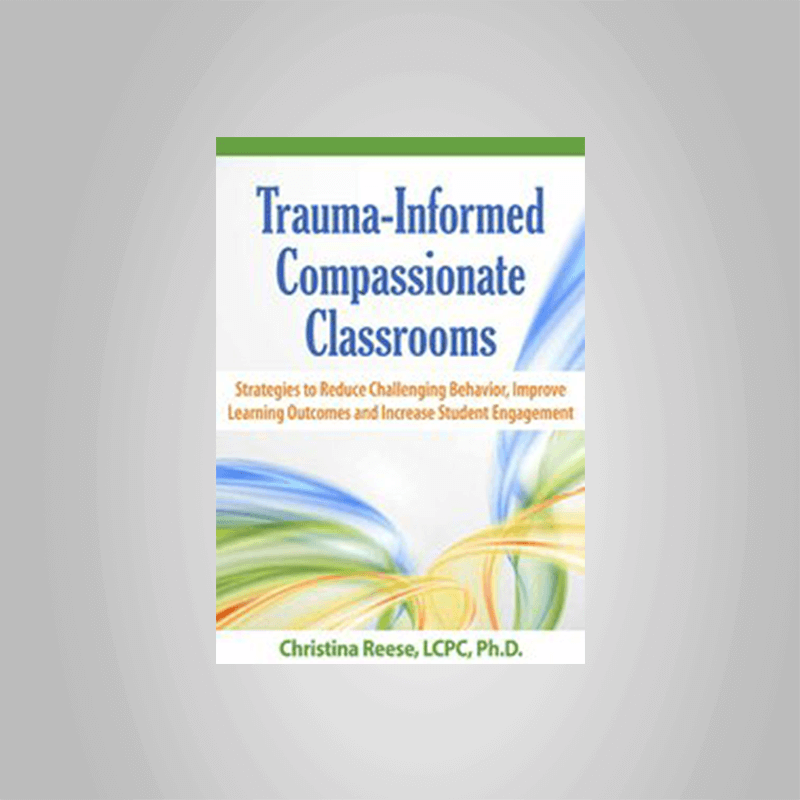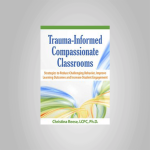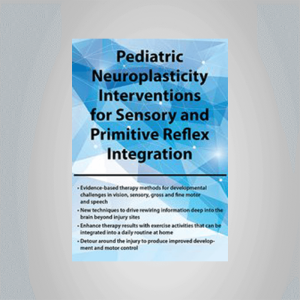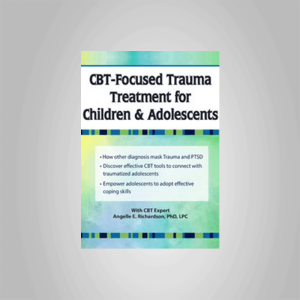Christina Reese – Trauma-Informed Compassionate Classrooms: Strategies to Reduce Challenging Behavior, Improve Learning Outcomes and Increase Student EngagementDescriptionAs an educator, you are faced with the challenge of meeting the social and emotional needs of all your students. This can be challenging enough with typical learners but it is even more difficult with those who have experienced trauma or have mental health challenges. Students who have experienced trauma often present as difficult to engage and display problematic behavior such as a low frustration tolerance, angry outbursts, or difficult social relationships. These behaviors all get in the way of teaching and learning. When a student has experienced trauma, he/she often spends much of the day in fight/flight/freeze mode which limits their capacity to learn. Their outwardly aggressive and irritable behaviors also disrupt the flow in the classroom, requiring your time and attention. Despite the amount of time you invest in behavior charts or incentives for good behavior, traditional behavioral approaches to classroom management and a punitive approach to discipline simply are not effective.Join Dr. Reese in the recording and learn how a trauma-informed approach will greatly reduce challenging behavior, improve student engagement and increase learning outcomes. Finish this program with new strategies, tools, and resources to reduce students’ impulsiveness, aggressive behaviors, and inattention and increase their focus, attention, and compassion. While this positive approach is absolutely essential for students with trauma, it will also greatly benefit each and every student in your classroom. Return to your school with:Research-based practices to establish a trauma-informed classroomA plan to develop positive relationships and build trust with your hard-to-reach studentsProve techniques for communicating more effectively and collaboratively with challenging studentsCognitive skill-building strategies which incorporate the science of neuroplasticity and the strengths-based perspective of neurodiversityHandoutsManual – Trauma-Informed Compassionate Classrooms (1.12 MB) 66 Pages Available after Purchase Illinois Educators Self-study Instructions (28.5 KB) Available after Purchase Illinois Educators Evaluation Form (1.2 MB) Available after Purchase Instructions for ASHA credit – Self Study (64.4 KB) Available after PurchaseOutlineTrauma in Students: What to Look ForFight, flight, or freeze responses: How it manifests in schoolWired for fear: Impact on the whole childACES – Adverse Childhood Experiences study and surveyThe role of poverty and mental health challengesTrauma TherapyBenefitsLimitations of the ResearchPotential RisksDiscipline in a Trauma-Informed ClassroomChanging your mindset: Punitive vs. collaborativeStrategies to foster intrinsic motivation3 steps to implement a collaborative approachCase study: How you respondNeuroplasticity: Activities to Establish & Strengthen Neural PathwaysStrategies to develop new ways of respondingSlow down, stop, and thinkRespond rather than reactSocial storiesTechniques to incorporate the 4 R’s:RhythmicRepetitiveRelationalRewardingRelationships as a Protective FactorTechniques to form positive relationships and increase students’ likeliness to:Stay in school longerWork harderIncrease test scores & gradesIncrease their self-confidenceTechniques to help students feel connected to school making them less likely to:Smoke or drinkHave sexual intercourseDevelop emotional problemsExperience suicidal thoughts or attemptsCarry weaponsBe involved in violence or dangerous activitiesCase study: Strengths-based, solution focused approachMindfulness and Self-Awareness Activities to:Help with transitionsReduce impulsive behaviorsStrengthen empathy, kindness, and compassionCalm and focus attentionSocial and Emotional Learning Techniques to Increase:Focus and concentrationImpulse controlConflict resolution skillsMindful Communication Tools to Improve Student EngagementLead with presenceAttentionIntentionMindful Strategies to Increase Connection, Empathy, & CommunityGratitudeHeartfulnessZones of Regulation to Teach Self-Awareness & Emotional ControlRed zoneYellow zoneGreen zoneBlue zoneFacultyChristina Reese, LCPC, Ph.D.Christina Reese, LCPC, Ph.D., has been working with children impacted by trauma for over 15 years, and has recently completed training as a TBRI Practitioner. She helps children and their families impacted by a variety of traumas, providing both in home and in school therapy to these children. Over this time, Dr. Reese has partnered with schools in Baltimore County and Baltimore City to help teachers find interventions that get results in the classroom. A passionate advocate for children and their families, she has worked with children in court ordered drug treatment at the Anne Arundel County Circuit Court, as well as in residential treatment centers and in the community.Dr. Reese, a recognized attachment and trauma professional, has created a comprehensive guide that explains attachment over a lifetime. Her book, Attachment: 60 Trauma-Informed Assessment and Treatment Interventions Across the Lifespan (PESI, 2018), offers trauma-informed strategies to facilitate connection, rebuild trust and restore positive emotions.Dr. Reese is a licensed clinical professional counselor in Maryland and Pennsylvania as well as a licensed clinical supervisor. She received her Master’s Degree in community counseling from McDaniel College in Westminster, MD and her Ph.D. in counselor education from George Washington University in Washington, D.C. Past work experiences include being director of a mental health clinic and the case manager of the Howard County Cold Weather Shelter, working with homeless individuals and families. Additionally, Dr. Reese is very passionate about her work focusing on attachment and has extensive experience with adoptive families and children in foster care.Speaker Disclosures:Financial: Christina Rice has an employment relationship with Mosaic Community Services. She receives a speaking honorarium from PESI, Inc.Non-financial: Christina Rice has no relevant non-financial relationship to disclose.
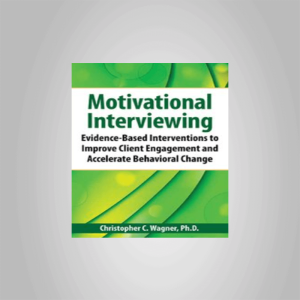 Christopher C. Wagner – Motivational Interviewing, Evidence-Based Skills to Effectively Treat Your Clients
₹5,810.00
Christopher C. Wagner – Motivational Interviewing, Evidence-Based Skills to Effectively Treat Your Clients
₹5,810.00
 Christian Thibaudeau – High performance fat loss program
₹2,988.00
Christian Thibaudeau – High performance fat loss program
₹2,988.00
Christina Reese – Trauma-Informed Compassionate Classrooms: Strategies to Reduce Challenging Behavior, Improve Learning Outcomes and Increase Student Engagement
₹5,810.00

